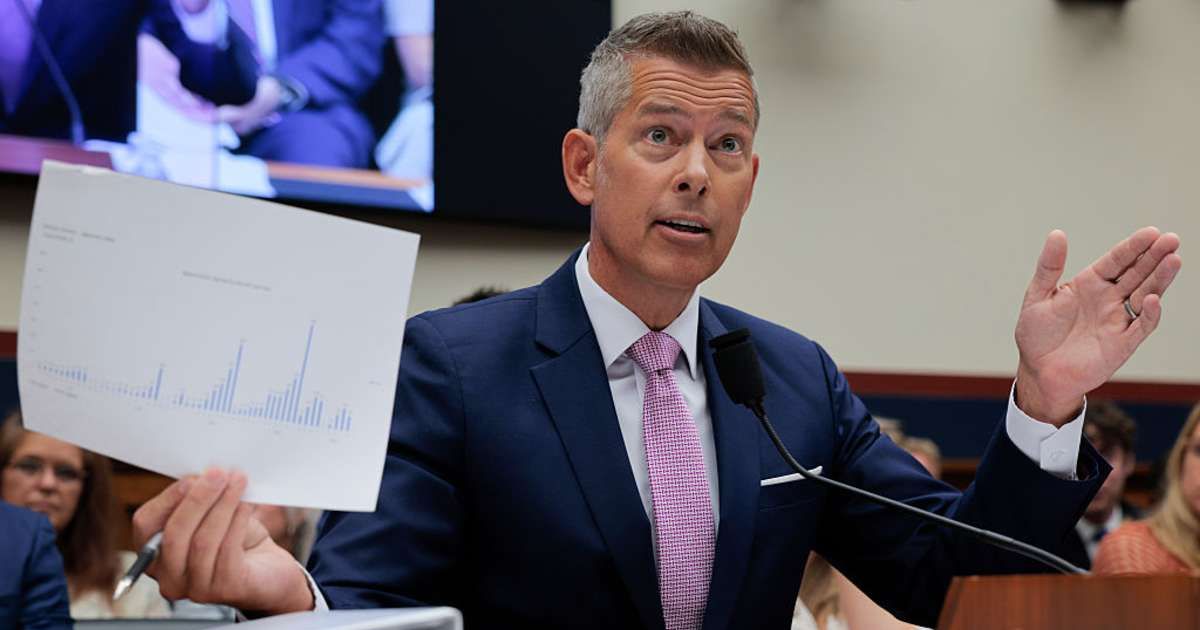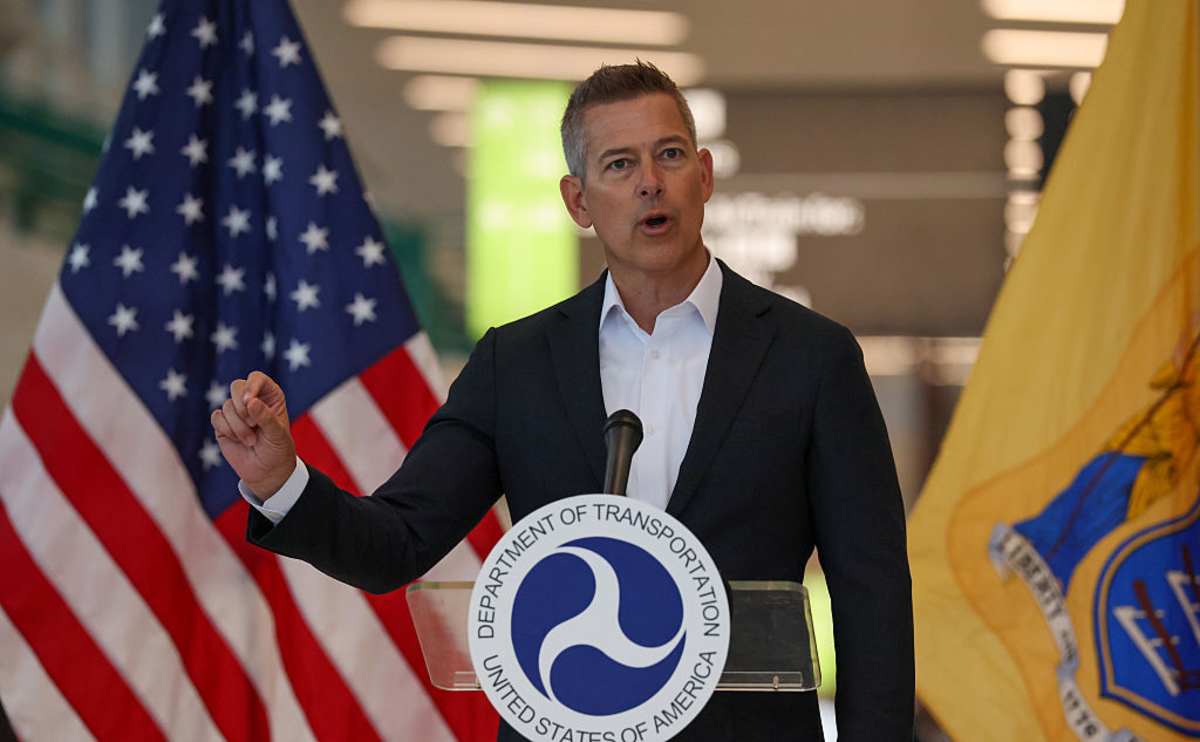NASA chief Sean Duffy’s lunar nuke mission has Internet cracking up: 'Fantastic news for moon residents'

WASHINGTON, DC: New NASA boss Sean Duffy has some wild nuclear plans for the moon.
In his first major move as head of the $25 billion space agency, Duffy is reportedly pushing an aggressive plan to plant a nuclear reactor on the lunar surface.
This isn’t some loony sci-fi script, but part of a real push to give the US an advantage in what insiders are calling “the second space race.”
Duffy, who also moonlights as the Secretary of Transportation, landed the NASA gig after Elon Musk’s favored candidate was shot down. Now, the former Fox News personality and Wisconsin congressman is looking to go nuclear in a showdown against China and Russia.
A source told Politico that the ultimate goal is for America to outpace China in "winning the second space race.”
Sean Duffy pushes for urgent US lunar reactor mission
The moon reactor concept isn’t brand-new. Back in 2022, NASA floated a plan to deploy a nuclear reactor on the moon by 2030, hoping to turn our crater-covered satellite into a space-based power station. But Sean Duffy wants things to move faster.
The urgency is reportedly fueled by whispers that China and Russia might be teaming up to build their own lunar nuclear base. That’s got Uncle Sam sweating harder than an astronaut on reentry.
Duffy’s directive warns that if China, Russia, or “any American enemy” gets there first, they could “declare a keep-out zone which would significantly inhibit the United States.”

The new NASA chief wants someone appointed to lead the effort within 60 days and to begin courting companies that can help launch this moon nuke mission ahead of Beijing and Moscow.
NASA eyes nuclear power as key to moon base and Mars missions
Solar panels are great for rovers, but a human base is going to need a lot more juice, and it needs to be reliable. That’s where nuclear fission comes in.
The space agency has long eyed nuclear energy as the answer. It’s small, light, and unlike solar panels, it doesn’t care if the sun is hiding behind a lunar rock.
NASA scientists say a fission system could provide “continuous power regardless of location, available sunlight, and other natural environmental conditions.” If this works, it could power not just a lunar base but also open the door to deeper space missions, like Mars.

The current plan involves a 40-kilowatt-class fission power system capable of surviving the harsh lunar environment for at least 10 years. NASA selected three design concepts for the system in 2022, but it’s unclear whether Sean Duffy is sticking with any of them, or if he has his own game plan.
Sean Duffy trolled on social media
However, not everyone was thrilled about this nuclear moonshot. Critics on social media tore into Sean Duffy's plans.
"Fantastic news for the residents on the Moon," one user snarked on X.
"Great. Then all we will need is a really, really, really, really long extension cord," another quipped.
Great. Then all we will need is a really, really, really, really long extension cord.
— Nick E. Fingaz🇺🇸🏴☠️ (@StickyFingaz47) August 4, 2025
"90% of the US is living check to check, and this is our priority?" someone else fumed.
90% of the US is living check to check and this is our priority?
— nemo300blk (@nemo300blk) August 4, 2025
"Is this the best we can do? Spend money on a nuclear reactor on the moon? How about we build some here on Earth so we can reduce reliance on fossil fuels and lessen our reliance on the Middle East?" read a comment.
Is this the best we can do? Spend money on a nuclear reactor on the moon? How about we build some here on earth so we can reduce reliance on fossil fuels and lesson our reliance on the Middle East. ?
— Roman Matijkiw (@Matijkiw) August 5, 2025
"Has to be the worst idea a NASA administrator has come up with," another insisted.
Has to be the worst idea a NASA administrator has come up with.
— Southern 🇺🇸🇩🇰🇺🇦 (@NavyVet135) August 5, 2025
This article contains remarks made on the Internet by individual people and organizations. MEAWW cannot confirm them independently and does not support claims or opinions being made online










